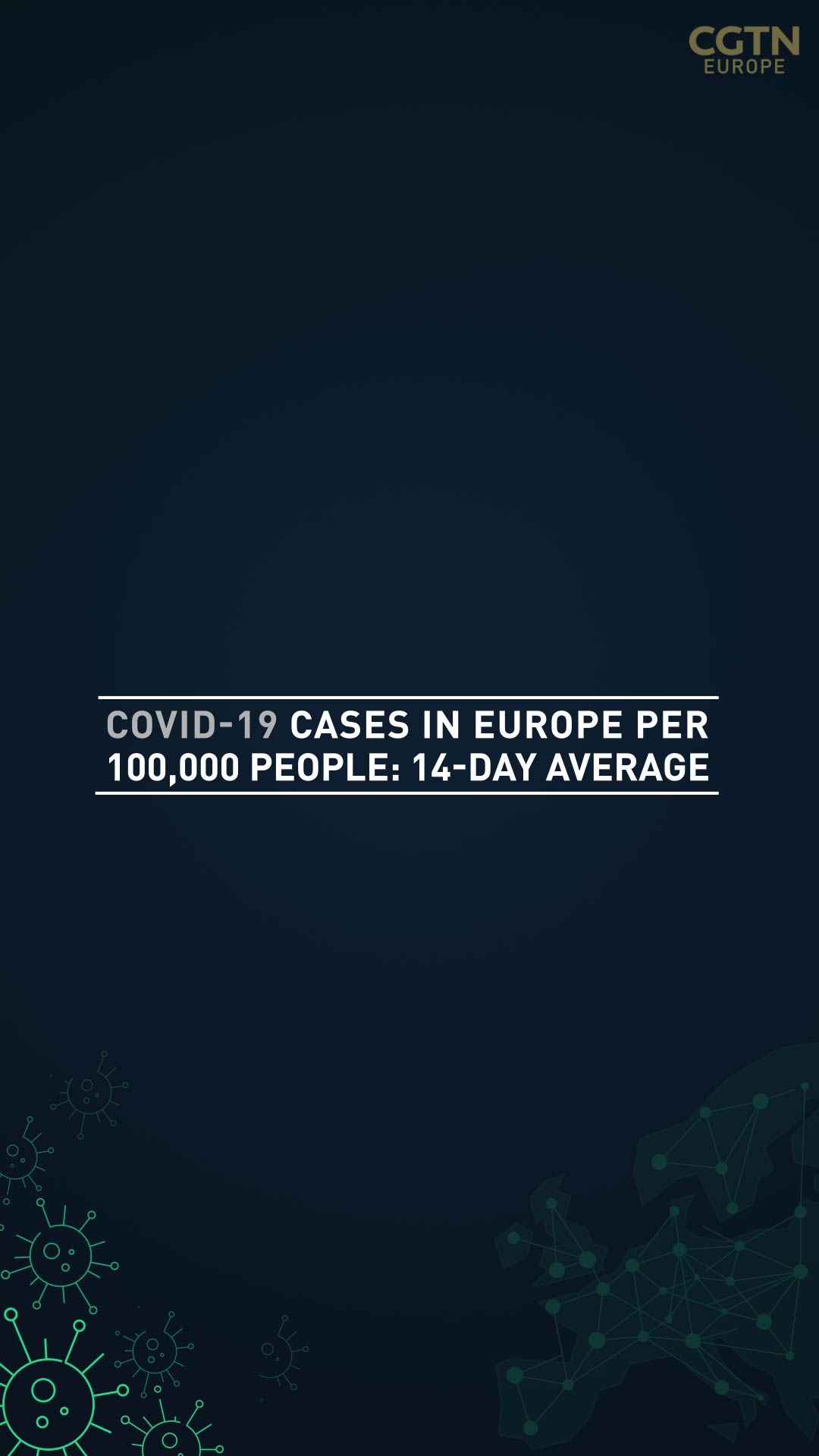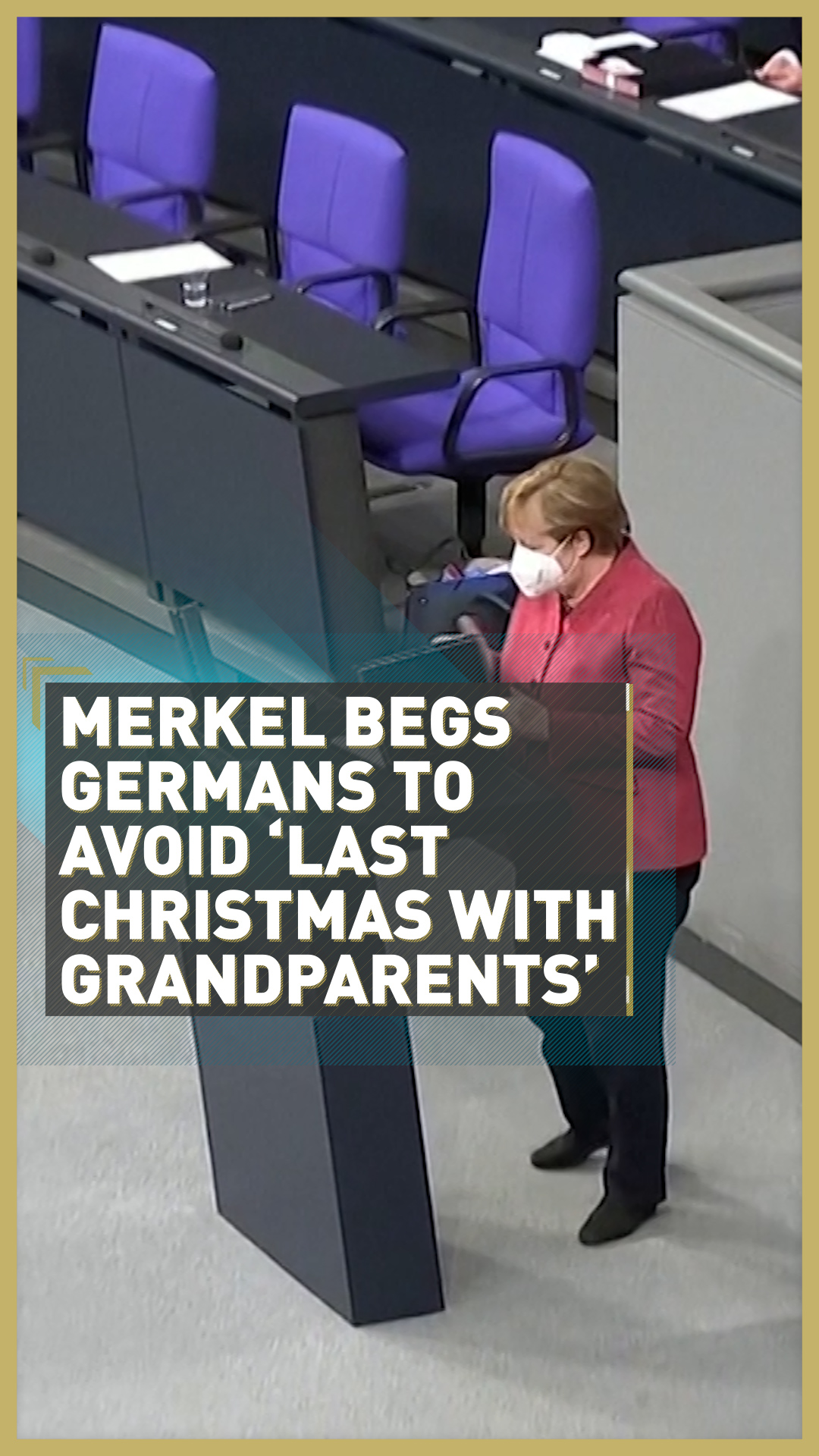00:20

TOP HEADLINES
- A six-week-long nationwide lockdown will be lifted in France on December 15, but an 8 p.m. curfew over Christmas and New Year will be imposed, said Prime Minister Jean Castex.
- France cannot let its "guard down" now, said Castex, as he warned that, while virus infections had dropped during the lockdown, the decline had now slowed. On Thursday, the country recorded nearly 14,000 infections over the previous 24 hours, compared with 12,000 a week earlier.
- Intensive care units in Sweden's capital, Stockholm, reached 99 percent capacity on Tuesday as its healthcare system struggles to cope with a surge in cases.
- London had the highest number of cases per 100,000 in England during the week ending December 6, Public Health England said. The 191.8 figure was higher than stricter tiered regions, such as the West Midlands, where cases had fallen to 158.4 per 100,000 people.
- Spain's death toll between March and May was almost 70 percent higher than the official data reported at the time, according to the country's National Statistics Institute.
- The European Medicines Agency confirmed the cyber attack on the company "will not affect the timeline for delivery of vaccines," despite German firm BioNTech saying regulation documents relating to its vaccine had been "unlawfully accessed."
- Denmark is to expand its implementation of tighter measures to cover up to 80 percent of the population after a surge in cases, Health Minister Magnus Heunicke said.
- Belarus will temporarily close its land border in late December to curb the spread of the virus, with residents or foreigners who hold temporary or permanent residency unable to leave the country via land border checkpoints from December 20.
- Berlin's mayor, Michael Muller, is to seek approval of the city's parliament next week to close all shops, apart from supermarkets, until January 10 and extend school winter holidays.
- The first of 100 vending machines used to issue and store COVID-19 tests has been launched at the Pauls Stradins Clinical University Hospital in Riga, Latvia, as part of a nationwide rollout.
- Czechia's government has had its state of emergency powers extended to December 23 as it continues to try to halt the spread of the virus.
- Slovakia has ordered all schools and shops to close for at least three weeks from December 21 after a recent surge in cases.
- Germany plans to give free FFP2 face masks to all people over 60 years old from December 15, Health Minister Jens Spahn said.
- The creators of Russia's Sputnik vaccine have denied claims people taking the jab must quit drinking alcohol for nearly two months, but did say patients should avoid "getting drunk," because it would compromise the immune system.

Ryan Thompson in Frankfurt
Germany's Chancellor Angela Merkel has caught the world's attention with her emotional plea in parliament.
"If we have too many contacts before Christmas and then it's the last Christmas with our grandparents, then we will have failed," she told members of parliament.
Merkel has asked Germans to stop socializing because the number of new infections and hospitalizations are still too high. New daily case figures have steadied at around 20,000 a day – but they are not going down to the levels targeted by health advisors.
The chancellor has suggested the country begins a "hard lockdown" before Christmas – which could be agreed to during a meeting of Germany's state leaders on Friday.
The state of Bavaria has already tightened COVID-19 restrictions by banning people from leaving their homes and formally declaring a "disaster situation."
02:30

ACROSS EUROPE
Stefan de Vries in Amsterdam
The government is allocating a further $4.48 billion for businesses and employees struggling during the pandemic. Hard-hit sectors, such as catering and culture, will receive additional support. Planned cutbacks to the emergency support program will be reversed.
Dutch biotechnology company Pharming has started a trial in the U.S. for the treatment of COVID-19 patients with its primary drug Ruconest. The drug has already been administered to the first patient. The company has been working on a drug against COVID-19 in collaboration with Basel University Hospital in Switzerland. Encouraging results already came out in April.
According to the health authority RIVM, there are currently around 2 million Dutch people protected against the coronavirus because they have been infected before.

The first of 100 vending machines used to issue and store COVID-19 tests has been launched at the Pauls Stradins Clinical University Hospital in Riga, Latvia, as part of a nationwide roll-out. /JANIS LAIZANS/REUTERS
The first of 100 vending machines used to issue and store COVID-19 tests has been launched at the Pauls Stradins Clinical University Hospital in Riga, Latvia, as part of a nationwide roll-out. /JANIS LAIZANS/REUTERS

People buy the test, before completing it and placing the sample back into the vender, a technician collects the completed kits once a day and results are available within 24 hours. /JANIS LAIZANS/REUTERS
People buy the test, before completing it and placing the sample back into the vender, a technician collects the completed kits once a day and results are available within 24 hours. /JANIS LAIZANS/REUTERS

The government is paying for the tests at the hospital, where the machine is reserved for staff, but other machines will charge $64 per test. //JANIS LAIZANS/REUTERS
The government is paying for the tests at the hospital, where the machine is reserved for staff, but other machines will charge $64 per test. //JANIS LAIZANS/REUTERS
Linda Kennedy in Budapest
More than 100,000 people registered in one day on Hungary's new vaccine registration site, the government has announced. There are as yet no approved vaccines in Hungary and registration is to reserve a future appointment.
The government said it had "tied down" 17.5 million doses of vaccines from a variety of manufacturers and is continuing to talk to Chinese vaccine makers and to monitor the Russian vaccine.
Ross Cullen in Paris
France will lift a six-week-long nationwide coronavirus lockdown on December 15 but impose a curfew from 8 p.m., including on New Year's Eve, Prime Minister Jean Castex announced on Thursday.
Castex said that families would be allowed to travel to celebrate Christmas together, but museums, theaters and cinemas will remain closed for an extra three weeks as the number of new COVID-19 infections begins to slowly rise again.
The situation had "considerably improved" since the country entered a second lockdown on October 30, he said, noting that the number of new infections had fallen from nearly 50,000 a day in late October to around 10,000.
But the decline "has slowed over the past several days," Castex said.
"We're on a sort of plateau," he said, adding: "We cannot let our guard down."
This Christmas holiday will be a test for our health system
- Marek Krajci, Slovakia's health minister
FROM OUR GLOBAL COLLEAGUES
CGTN Europe special: The Alps - Timeless and changing
CGTN China: China's COVID-19 vaccines may fill gaps left be western ones
CGTN America: Record number of COVID-19 patients hospitalized in the U.S.
CGTN Africa: Africa's confirmed cases pass 2.28m, Africa CDC
Sign up here to get the COVID-19 Europe bulletin sent directly to your inbox.
CGTN Europe has been providing in-depth coverage of the novel coronavirus story as it has unfolded. Here you can read the essential information about the crisis.

